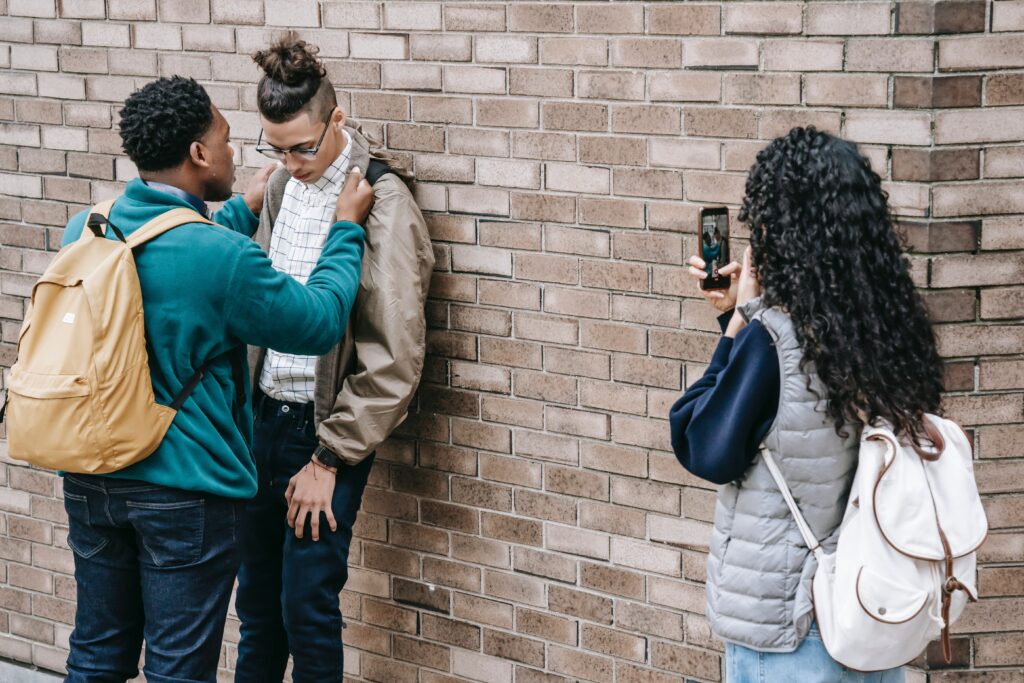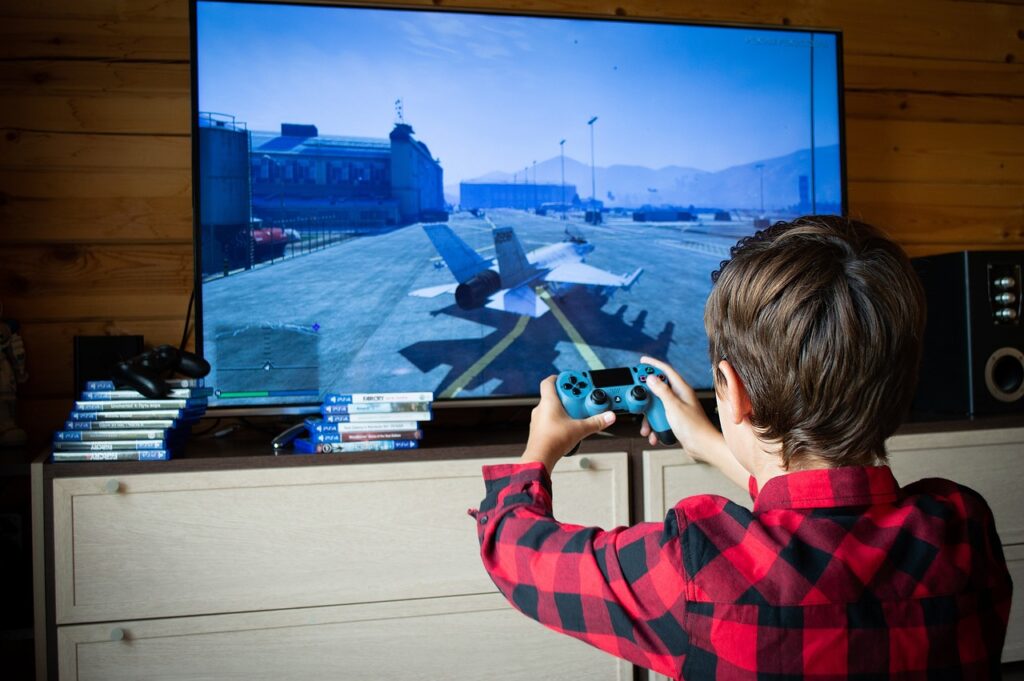Disturbing viral trend of kids beating up other children for ‘likes’

A parent group has warned that a sickening trend of filming brutal attacks for popularity on apps such as TikTok has become widespread.
The Daily Record reports that sickening footage showing violence taking place at schools, shopping centres, a trains and on the streets is sweeping the internet.
Glasgow City Parents Group say the disturbing behaviour is being driven by teens wanting to be popular on social media.
The group’s chairperson, Leanne McGuire, said: “If we look at the way social media works, it’s all about trying to come up with content that will get you ‘likes’ and views. It has become a desire among young people to be seen as the creators of the popular content.
“Whether it is harmful, dangerous or violent, I don’t think for some it matters. I think what matters to them is the notoriety that comes with it. To them, it is entertainment and content to share. They’re probably not thinking that deeply about it or the consequences that will follow.”
She added that the need to stand out on algorithms to get viewings results in shocking content receiving the most attention.
As well as TikTok, these abhorrent clips are being shared on Whatsapp, Facebook and Twitter, according to the paper.
In December, a 15-year-old pupil from a school in Fort William was filmed being pushed to the ground before being kicked to the face and head repeatedly. He reportedly needed brain scans after he was left feeling dizzy and sick.
In another video, a girl is lured onto school grounds and ambushed by bullies who pelt objects at her, before she is dragged to the ground and punched and kicked.
In October, an autistic pupil, then 12, was hospitalised after she was beaten unconscious in a Glasgow park in an attack which was filmed by a group of around 10 youths who shared the footage online.
Officers from Police Scotland said that any footage showing apparent criminality shared online and reported to them will be thoroughly investigated.
Nearly half of youngsters bullied or trolled online over physical appearance, study finds

Social media is triggering a significant number of children to dislike their own bodies, according to new a major new study.
It found that nearly half of all children and young people aged from 12 to 21 surveyed reported being regularly bullied or trolled online about their looks. This had caused them to become withdrawn, start exercising excessively, stop socialising completely or self-harm.
Three out of four children as young as 12 said they dislike their physical appearance and feel embarrassed by the way they look. This figure rose to eight in 10 young people aged 18 to 21.
The findings show that urgent action is needed in order to tackle the harm online bullying and impossible body ideals being promoted online is causing, according to the stem4, the youth mental health charity behind the research, which questioned more than 1,000 youngsters aged 12 to 21.
Four in 10 said they are in mental health distress, with almost one in five admitting they suffered body image issues. It was discovered that14 per cent are experiencing eating problems, such as extreme restrictive eating, binge eating and purging or vomiting. Just one in ten young people who needed support were actually receiving treatment.
“We need to improve understanding of the potentially compelling impact of social media content, and the reinforcement created through algorithms, on young people’s engagement with apps and their consequent mental health,” Dr Nihara Krause, consultant clinical psychologist, CEO and founder of stem4 told The Guardian.
Almost all children as young as 12 (97 per cent) are on social media, the survey found. More than two thirds (70 per cent) reported that social media makes them feel stressed, anxious and depressed and two-thirds said they are worried by the amount of time they spend online. Youngsters are spending on average 3.65 hours a day on apps.
The negative impact of the internet on young people has come into the spotlight after the death of 14-year-old Molly Russell. In a landmark ruling at an inquest in September, a coroner ruled she died from “an act of self-harm while suffering from depression and the negative effects of online content”.
The long-awaited Online Safety Bill has returned to Parliament, but critics are unhappy that the government in effect ditched proposals to outlaw online material that is deemed ‘legal but harmful’ and to make platforms such as Facebook and Instagram liable for significant fines if regulations are breached.
Labour has said it will attempt to amend the bill to something closer to its original form as it progresses through law-making stages.
Video games could make you smarter

Video games are often associated with causing children to act violently and anti-socially as well as suffer mental health problems.
But according to Dr Pete Etchells, games don’t rot your brains. In fact, they might be sharpening young people’s cognitive faculties.
The professor of psychology at Bath Spa University, whose research focuses on how playing video games affect our mood and behaviour, wrote a piece for BBC Science Focus to challenge the deep-seated ideas about the supposed negative impacts.
A brain imaging study earlier this year suggests that playing video games may be beneficial for children’s cognitive development. The study, published in JAMA Network Open, found that children who regularly played video games performed better on two cognitive tasks and showed altered patterns in regions of the brain implicated in attention, memory, and visual processing.
Dr Etchells points to 2020 study from Sweden involving 9,000 US children which discovered that youngsters aged 9 or 10 who played video games for longer than average didn’t display any differences in intelligence compared with kids who played less.
When the researchers caught up with 5,000 of those children two years later, they found that by age 12, those who played video games had 2.5 more IQ points than average.
Dr Etchells said: “Why off-the-shelf video games result in improvements in cognitive abilities over and above more targeted games isn’t clear, and scientists are still trying to understand why this might be the case.
“One argument is to do with the amount of time invested: whereas brain-training apps tend to deliver mini-games over a short timespan, video games are immersive and often require sustained levels of attention and problem-solving.
“Moreover, despite some promising findings, the scientific jury is still very much out as to whether there is currently enough convincing evidence to back up the claim that video games make us smarter.”
News from elsewhere this week:
Labour pledges to toughen ‘weakened and gutted’ online safety bill – Guardian
‘Roblox seems a dangerous place for kids’: Claire Sweeney warns parents of dangers of gaming site after online thieves targeted her son Jaxon, 7 – Daily Mail
I’m a tech expert – here are 5 internet secrets you need to know to keep your kids safe – The Sun
